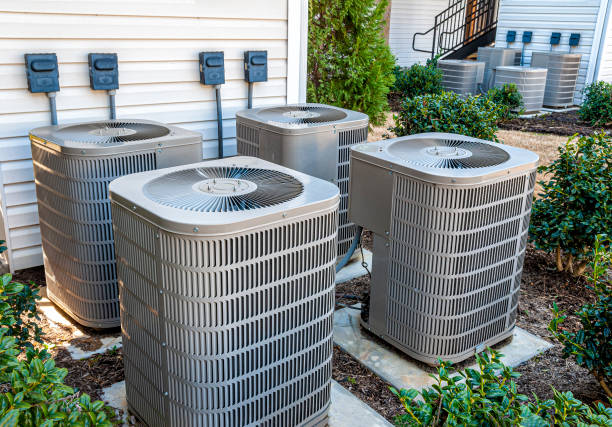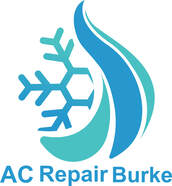|
If you looking for how to fix air conditioner leaking water inside? During the sweltering months of a Virginia summer, your air conditioner is probably running nonstop. You might be wondering why your air conditioner is leaking water and what you can do to stop it. Continue reading to learn some possible causes of your AC leak as well as solutions for the problem. It might be very frightening to see water trickle down your air conditioning machine. A dirty puddle inside is the last thing you want, especially considering the expensive nature of AC repairs! This situation is abnormal even though your air conditioner eliminates moisture from the air. Alternatively, a leaky AC unit may be a sign of a more serious problem. When you notice your air conditioner leaking water, turn off the unit immediately and contact HVAC support as soon as you can. If you continue using your AC, it can break down due to water accumulation. There's no need to freak out if you find an interior AC unit leaking water; it only needs your quick attention. Most AC leaks can be promptly fixed by an HVAC specialist, and they could not require very costly repairs. Common Water Leaking ProblemsThe solution to the leaky water in the air conditioner:
What Causes an Air Conditioner to Gather Water?Your HVAC can regulate humidity in addition to temperature. The evaporator coils make up the home air conditioner. Your HVAC system draws in warm air from your house, blows it over the chilly evaporator coils, and causes it to condense, reducing humidity. The condensation that results drips into a drain pan and a condensate drain pipe. This pipe empties the water outside of your house. When your air conditioner is having trouble getting rid of the extra water due to excessive moisture buildup, there is an issue. This may cause your air conditioner to spill water into your house. When Water Is Leaking, Can You Use Your Air Conditioner?Even if your air conditioner is leaking water, it will still function. On the other hand, its capacity to chill your home can diminish. As soon as you notice water flowing from your air conditioner, you should immediately turn it off because you don't know what's causing the leak. If your device continues to run, there may be significant harm to the internal AC components, which could eventually result in a compressor failure. Your walls, ceilings, furniture, and other household goods could all be at risk from an indoor air conditioning unit that is leaking water. Mold development can also be caused by an abundance of moisture. So contact restoration service for mold removal. Eight Causes of Indoor Water Leakage from Your ACNumerous factors can prevent your air conditioning system from effectively removing moisture from the air, ranging from clogged drain lines to unclean air filters. Let's examine some typical AC issues that could result in how to fix air conditioner leaking water inside: A Condensate Drain Line CloggedThis is among the most frequent causes of water leaks from air conditioners. There are dirt and particles in the moisture that your device collects during the dehumidification process. If the condensate drain pipe is not cleaned, debris may build up over time and obstruct it. Water will eventually begin to accumulate in your unit and overflow the drain pan into your home. A cutoff valve on certain contemporary air conditioners causes the machine to turn off if it senses a congested drain line. This is a fantastic way to keep water damage out of your home. You will need to take action on your own, though, if this option is not available in your unit. Ways To Clear A Clogged Drain Pipe:
A damaged or rusted drain panTo collect condensation as it drops, a drain pan is placed in the air handler or beneath the evaporator coils of your air conditioner. The water then enters the drain line and exits the building. Water will now begin to leak instead of entering the drain line if the drain pan is rusty or damaged. Your air conditioner will begin to exhibit indications of aging when it is fifteen to twenty-five years old, and a corroded drain is one such sign. Your air conditioning system may leak water due to rust and corrosion in the drain pan. Solution To Deal This Problem
Disconnect the drain lineYour AC will leak water if your drain line disconnects because it is not attached correctly. The drain line may come loose over time or may disconnect as a result of poor installation, repair, or maintenance. Water may collect on the floor or seep through the ceiling in the event of a disconnected drain line. The location of your AC unit can affect the leaking source. SolutionReconnecting the drain line requires contacting HVAC assistance. Always use a professional for installation and repair services to avoid issues down the road. How to fix air conditioner leaking water inside? Float Switch Or Condensate Pump FailureIt can be difficult for water to escape your drain line if your central air conditioning unit is situated in a remote attic or basement. In this case, the condensate pump is crucial to the system's water removal process. The pump's float switch activates when the water level in the condensate pump reservoir rises. The condensate pump is then activated, causing the water outside your house to drain. It won't pump water outside the unit if the float switch isn't working properly or if the condensate pump isn't working properly. Water will so build up and begin to leak out of your air conditioner as a result. SolutionYou can't solve this issue on your own. Depending on the extent of the damage, schedule a technician to have the condensate pump fixed or replaced. Build-Up of CondensationA typical byproduct of your air conditioner dehumidification operation is condensation. But an overabundance of condensation might cause the air conditioner to spill water through the vents or air ducts. Water leaks can harm the insulation in your house. Additionally, it can worsen the quality of the air inside your home by encouraging the growth of mold in air ducts. Condensation Accumulation May Result From Several Reasons:
Solutions
Frozen Coils For EvaporatorsYour indoor unit's evaporator coils may freeze up as a result of a refrigerant leak or restricted airflow. This may result in an accumulation of moisture, which could overflow the drain pan and let water seep out. Solution
If you are unable to resolve this problem on your own; instead, an HVAC specialist must locate the leak, resolve it, and replace the refrigerant.
0 Comments
Leave a Reply. |
AuthorWrite something about yourself. No need to be fancy, just an overview. Archives
June 2024
Categories |
- Home
-
Services
- Residential HVAC >
-
Commercial HVAC
>
- Professional Commercial AC Services
- Professional Apartment AC Services
- Commercial HVAC Installations
- Commercial HVAC Services
- Commercial Plumbing Services
- Commercial Water Heater Services
- Commercial Refrigeration Services
- Commercial AC and Furnace Services
- Commercial AC Pump Services
- Commercial Rooftop Unit Services
- Commercial Duct Cleaning Services
- Commercial Heating Preventive Maintenance
- About Us
- Near Me
- FAQ'S
- Contact Us
- Free Estimate
- Resources
- Blog
- Home
-
Services
- Residential HVAC >
-
Commercial HVAC
>
- Professional Commercial AC Services
- Professional Apartment AC Services
- Commercial HVAC Installations
- Commercial HVAC Services
- Commercial Plumbing Services
- Commercial Water Heater Services
- Commercial Refrigeration Services
- Commercial AC and Furnace Services
- Commercial AC Pump Services
- Commercial Rooftop Unit Services
- Commercial Duct Cleaning Services
- Commercial Heating Preventive Maintenance
- About Us
- Near Me
- FAQ'S
- Contact Us
- Free Estimate
- Resources
- Blog
Local Service AreasHours of Operation
Monday 9:00 AM - 5:00 PM
Tuesday 9:00 AM - 5:00 PM Wednesday 9:00 AM - 5:00 PM Thursday 9:00 AM - 5:00 PM Friday 9:00 AM - 5:00 PM Saturday 9:00 AM - 5:00 PM |
Navigation |
Services |
Contact us |
Terms of service | Privacy Policy | Sitemap


 RSS Feed
RSS Feed
